Sleep is vital for maintaining good physical and mental health - getting just an extra 60 minutes of sleep per night will make you feel so much better in yourself. So when you’re struggling to sleep, it can feel frustrating. It definitely has an impact on your mood, memory and day-to-day abilities! Reaching for prescription sleeping tablets can be tempting, but these often come with negative side effects: natural sleep aids are a fantastic alternative, helping you sleep more soundly without any damage to your body.
How important is sleep?
Your body needs sleep for many reasons - resting gives you a chance to heal aches and pains, and sufficient sleep helps prevent health conditions such as cardiovascular disease, high blood pressure, and diabetes. If you get a good night’s sleep, you’ll see an improvement in your mood; not only that, but you’ll notice an improvement in your cognitive function. Your memory and recall will improve, and you’ll function better at work.
On the other hand, sleep deprivation is terrible for our health. A lack of sleep can lead to health conditions, such as those above, alongside kidney disease and obesity. You won’t be able to function as well as you could, meaning there is an increased risk of accidents, and you’ll perform poorly in daily tasks. Mood swings and depression are common in people who struggle to sleep, and your immune system is naturally lower when you’re not getting enough rest. As you can see, sleep is incredibly important!
What are the most common sleep problems?
There are many problems which come alongside trying to sleep. For example, being too hot or cold at night can put the brakes on a good night’s slumber - as can sharing a bed with somebody who snores! Restless legs syndrome and sleep apnea are examples of diagnosable medical issues which prevent you from drifting off, along with narcolepsy, bruxism (grinding your teeth), and of course, insomnia. These are some of the most common sleep problems plaguing the population and keeping us up at night - insomnia being the most common. It is thought to affect 1 in 3 people in the UK alone!
What are the most common causes of insomnia?
The chronic inability to sleep is known as insomnia; about 10% of the global population suffers from medically diagnosed insomnia. Experts aren’t sure exactly what causes the problem, but there are some common causes to consider…
Genetics
Insomnia can be a genetic issue; these sleep problems are known to run in families. Your genes affect how much sleep you need to function well, so it isn’t too surprising that insomnia can be a hereditary issue!
Life circumstances
If you’re feeling particularly stressed or anxious, say if you’re moving house or worrying about a new job, you might struggle to sleep. This temporary insomnia can be incredibly annoying, and the frustration it causes can hinder your sleep efforts further. It becomes a vicious circle that is difficult to get out of.
Mental health conditions
Around half of the people who suffer from long-term insomnia are also diagnosed with at least one mental health condition, typically clinical anxiety or depression. These mental illnesses can take a toll on the brain, which is due to the excessive production of various hormones. Too much of these hormones can stop you from sleeping.
Physical health conditions
There are certain physical health conditions which can stop you sleeping; acid reflux, for example, can keep you awake in pain and discomfort for hours. Injuries like a sprained example or broken arm can prevent sleep too, because they make it so difficult to get comfortable in bed.

Lifestyle factors
Your lifestyle can also stop you from being able to drift off. Excessive alcohol and caffeine consumption will keep you awake for hours - and a lack of exercise will also make it harder to sleep.
What are the best natural sleep aids?
There are definitely some ways in which you can improve your chances of a good night’s sleep without resorting to the use of prescription sleep aids. With plenty of natural options available, you should be sleeping soundly in no time. Some of the best natural sleep aids include:
-
Lavender (scented candles lit for a while before sleeping, oils in a diffuser, or a scented pillow spray for example
-
Valerian root (available to make as tea to drink before bed)
-
CBD (to be taken in gummy form or as an oil which you can drop underneath your tongue)
-
Melatonin (available in gummy or capsule form, as well as present naturally in the body - foods like chicken, turkey, and pumpkin seeds will enhance production)
All of these natural sleep aids are available to purchase in supermarkets and health food stores. They are much better for you than prescription drugs, with fewer side effects.
Some other natural sleep aids come from switching up your bed and bedding. Making your bed more comfortable will help you fall asleep quickly (and stay asleep!) at night. Adding a bamboo mattress topper to your bed, for example, is more affordable than buying a new mattress, but it truly increases comfort levels. By helping to align your body and support you as you drift off, you’ll notice a difference. Picking up some breathable bamboo bedding, which is softer than silk and just as luxurious as cashmere, will also help you maintain the perfect comfort levels all night long!
Sleepy Girl Mocktail: A Trendy Natural Sleep Aid
In the realm of home remedies and wellness trends, the Sleepy Girl Mocktail has emerged as a popular choice for those seeking a natural aid to enhance sleep quality. This non-alcoholic beverage, which combines 1/2 cup of tart cherry juice with a tablespoon of magnesium powder, topped off with a fizzy drink like sparkling water, has been lauded for its potential sleep-inducing properties. The key to its appeal lies in its primary ingredients: tart cherry juice and magnesium. Tart cherry juice is a natural source of melatonin, the hormone responsible for regulating our sleep-wake cycles, while magnesium is renowned for its relaxation benefits, often used to alleviate muscle tension and stress.
When these elements are combined in the Sleepy Girl Mocktail, they create a drink that not only promises to soothe the body into a restful state but also offers a refreshing taste, especially when enhanced with optional additions like elderberry syrup, ginger-lime soda, or ice cubes infused with lemon and berries. Despite its growing popularity, it's crucial to approach this bedtime concoction with a balanced perspective. While each ingredient individually supports sleep, the overall effectiveness of the Sleepy Girl Mocktail in improving sleep has yet to be validated by clinical studies.
Moreover, those considering this mocktail should be mindful of dietary restrictions and potential health implications, particularly when introducing supplements like magnesium powder into their diet.

How can changing your lifestyle lead to better sleep?
There are many lifestyle improvements you can make to encourage a better night’s sleep. For the most part, they’re pretty simple too. Reducing alcohol and caffeine is a great way to feel healthier in general - and it can also help you sleep more soundly. Eating better and exercising more will help, too, as will getting into a good bedtime routine. Doing the same thing each night before you get in bed will show your brain that it’s time to drift off!
And finally, having less screen time in the evening is key. Tablets, phones, laptops and TVs emit a harsh light that can cause disruptions in the melatonin surge needed to help you sleep. Turning them off around 2 hours before you go to bed is easier said than done for many of us, but it really will help. Instead, read a book or play a board game.
Getting a good night’s sleep is so important to protect your mental and physical health - and with the natural sleep aids and lifestyle changes suggested in this article, you’re definitely on the way to sleeping much better. Sleep hygiene is crucial too! Hopefully, with all of this advice, you’ll be drifting off before you know it…
FAQ
1. What are natural sleep aids?
Natural sleep aids are substances or techniques that promote better sleep without prescription medications or artificial substances. These aids include herbal supplements, relaxation techniques, lifestyle changes, and sleep hygiene practices.
2. Are natural sleep aids safe to use?
Natural sleep aids can be generally safe when used as directed. However, it's essential to consult with a healthcare professional before trying any new sleep aid, especially if you have underlying health conditions or are taking other medications. This will help ensure compatibility and minimize the risk of adverse effects.
3. What are some popular natural sleep aids?
Some popular natural sleep aids include melatonin, valerian root, chamomile tea, lavender essential oil, magnesium, and relaxation techniques such as meditation and deep breathing exercises. Each person may respond differently to various sleep aids, so it's important to find what works best for you.
4. How do natural sleep aids work?
Natural sleep aids work through various mechanisms. For example, melatonin supplements help regulate the sleep-wake cycle, valerian root is a mild sedative, and chamomile tea has calming properties. These aids may promote relaxation, reduce anxiety, and enhance sleep quality.

![[MattressTopper] Panda London Memory Foam Bamboo Mattress Topper package box](http://pandalondon.com/cdn/shop/files/Bamboo_Mattress_Topper_Package_Box.webp?v=1742301823&width=1500)
![[MattressTopper] Panda London Memory Foam Bamboo Mattress Topper on the floor](http://pandalondon.com/cdn/shop/products/Panda-Memory-Foam-Bamboo-Mattress-Topper-Yoga-e1624045454555.jpg?v=1758795458&width=1000)
![[MattressTopper] Bamboo Mattress Topper Lifestyle Image with Memory Foam Pillows Product Page](http://pandalondon.com/cdn/shop/files/Bamboo_Mattress_Topper_Lifestyle_Image_with_Memory_Foam_Pillows_Product_Page.webp?v=1758795458&width=800)
![[MattressTopper] Bamboo Mattress Topper Lifestyle Image with Bamboo Pillows In the Garden room Product Page](http://pandalondon.com/cdn/shop/files/Bamboo_Mattress_Topper_Lifestyle_Image_with_Bamboo_Pillows_In_the_Garden_room_Product_Page.webp?v=1758795458&width=800)
![[MattressTopper] Panda London Memory Foam Bamboo Mattress Topper side](http://pandalondon.com/cdn/shop/files/Mattress_Topper_Isolated_-_resized.jpg?v=1758795458&width=800)
![[HybridMattressPro] Hybrid_Bamboo_Mattress_Pro_Product_Image_2026](http://pandalondon.com/cdn/shop/files/Hybrid_Bamboo_Mattress_Pro_Product_Image_2026.webp?v=1764944771&width=1000)
![[HybridMattressPro] Breathable Hybrid Bamboo Mattress](http://pandalondon.com/cdn/shop/products/Breathable-Hybrid-Bamboo-Mattress.jpg?v=1764944771&width=1920)
![[HybridMattressPro] Hybrid Bamboo Mattress Pro Cover Zip](http://pandalondon.com/cdn/shop/files/Hybrid_Bamboo_Mattress_Cover.jpg?v=1764944771&width=800)
![[HybridMattressPro] Panda Hybrid Bamboo Mattress Pro](http://pandalondon.com/cdn/shop/files/Hybrid_Bambo_Memory_Foam_Mattress_-_BioCell_Foam_x.jpg?v=1764944771&width=800)
![[HybridMattressPro] Couple on a Hybrid Bamboo Mattress Pro](http://pandalondon.com/cdn/shop/files/Hybrid_Bamboo_Mattress_Couple.jpg?v=1764944771&width=800)
![[CloudDuvet] Panda London The Cloud Bamboo Duvet Packaging](http://pandalondon.com/cdn/shop/products/Panda-London-The-Cloud-Bamboo-Duvet-Panda-Life-scaled_00a651ad-4ca3-4105-b520-12a94c1a4f71.jpg?v=1713363286&width=1920)
![[CloudDuvet] Panda London The Cloud Bamboo Duvet Rolled](http://pandalondon.com/cdn/shop/products/Duvet-Listing-Images03.jpg?v=1764079307&width=1000)
![[CloudDuvet] Panda London The Cloud Bamboo Duvet Girl Huggin a Duvet on the Bed](http://pandalondon.com/cdn/shop/files/Cloud_Bamboo_Duvet_-_Lady_Hugging_it_on_Bed_LifestyleImage.jpg?v=1764079307&width=1000)
![[CloudDuvet] Panda London The Cloud Bamboo Duvet Guy In the Air with Cloud Bamboo Duvet](http://pandalondon.com/cdn/shop/files/GuyonaHybridBambooMattresswithCloudDuvet.jpg?v=1764079307&width=2000)
![[CloudDuvet] Panda Cloud Duvet Winter on the bed lifestyle image](http://pandalondon.com/cdn/shop/files/Panda_Cloud_Duvet_Winter_on_the_Bed_Lifestyle-1_image.jpg?v=1764079307&width=1000)
![[BBWhite] White 100% Bamboo Bedding](http://pandalondon.com/cdn/shop/files/Pure_White_Full_Bed.webp?v=1719581797&width=1000)
![[BBWhite] White 100% Bamboo Bedding Texture](http://pandalondon.com/cdn/shop/files/100_Bamboo_Bedding_-_Pure_White_-_Close_Up_02.webp?v=1762879591&width=1000)
![[BBWhite] White 100% Bamboo Bedding Woman in bed sleeping](http://pandalondon.com/cdn/shop/files/100-Bamboo-Bedding-Set-Pure-White-BB.webp?v=1762879591&width=768)
![[BBWhite] White 100% Bamboo Bedding Woman Duvet cover buttons](http://pandalondon.com/cdn/shop/files/hand_and_buttons_1.webp?v=1762879591&width=1000)
![[BBWhite] White 100% Bamboo Bedding Woman in bed looking and smiling-](http://pandalondon.com/cdn/shop/files/SatonMadeBed-White100_BambooBedding-white_-_BB_SideShot1000x1000.webp?v=1762879591&width=980)
![[BBUrbanGrey] Urban Grey 100% Bamboo Bedding](http://pandalondon.com/cdn/shop/files/Made_Bed_-_Urban_Grey_-_Wide_Shot_2_1_1.webp?v=1762880019&width=1000)
![[BBUrbanGrey] Cloud Duvet Urban Grey 100% Bamboo Bedding Set](http://pandalondon.com/cdn/shop/files/Cloud_Duvet_-_Grey_-_Close_up_2.webp?v=1762880019&width=1000)
![[BBUrbanGrey] Urban Grey 100% Bamboo Bedding Set Woman sitting on the bed](http://pandalondon.com/cdn/shop/files/Sat_in_Bed_-_Grey_100__Bamboo_Bedding_-_Wide_Shot.webp?v=1762880019&width=1000)
![[BBUrbanGrey] Urban Grey 100% Bamboo Bedding Set Woman Duvet buttons Panda London](http://pandalondon.com/cdn/shop/files/hand_buttons_grey_bedding_1.webp?v=1762880019&width=1000)
![[BBUrbanGrey] Woman Sitting on the Bamboo Bedding with coffee](http://pandalondon.com/cdn/shop/files/SatonMadeBed-White100_BambooBedding-SideShot1000x1000.jpg?v=1762880019&width=1000)
![[BBNavyBlue] Deep Sea Navy Blue 100% Bamboo Bedding](http://pandalondon.com/cdn/shop/files/Made_Bed_-_Navy_-_Wide_Shot_3_copy.webp?v=1762879591&width=1000)
![[BBNavyBlue] Deep Sea Navy Blue 100% Bamboo Bedding Texture](http://pandalondon.com/cdn/shop/files/Cloud_Duvet_-_Navy_-_Close_up_2.webp?v=1762880019&width=1000)
![[BBNavyBlue] Deep Sea Navy Blue 100% Bamboo Bedding Woman Sitting on the bed](http://pandalondon.com/cdn/shop/files/Sat_Up_in_Bed_-_Navy_100__Bamboo_Bedding_-_Hands_on_Bed.webp?v=1762880019&width=1000)
![[BBNavyBlue] Deep Sea Navy Blue 100% Bamboo Bedding Duvet Cover Buttons](http://pandalondon.com/cdn/shop/files/Cloud_Duvet_Cover_Buttons_-_Deep_Sea_Navy.webp?v=1762880019&width=1000)
![[BBNavyBlue] Deep Sea Navy Blue 100% Bamboo Bedding Woman sitting on the bed looking away](http://pandalondon.com/cdn/shop/files/SatonMadeBed-White100_BambooBedding-SideShot1000x1000-001.webp?v=1762880019&width=980)
![[BBPink] Vintage Pink Blue 100% Bamboo Bedding](http://pandalondon.com/cdn/shop/files/Made_Bed_-_Pink_-_Wide_Shot_copy.webp?v=1762879591&width=1000)
![[BBPink] Vintage Pink Texture 100% Bamboo Bedding](http://pandalondon.com/cdn/shop/files/Cloud_Duvet_-_Pink_-_Close_up_2.webp?v=1762880019&width=1000)
![[BBPink] Vintage Pink Woman Sitting on the 100% Bamboo Bedding](http://pandalondon.com/cdn/shop/files/Sat_Up_in_Bed_-_Pink_-_Hands_on_Bed.webp?v=1762880019&width=1000)
![[BBPink] Vintage Pink Woman Sitting on the 100% Bamboo Bedding Duvet Cover](http://pandalondon.com/cdn/shop/files/Cloud_Duvet_Cover_Buttons_-_Vintage_Pink.webp?v=1762880019&width=1000)
![[BBPink] Vintage Pink Woman Sitting on the 100% Bamboo Bedding Woman looking far away](http://pandalondon.com/cdn/shop/files/SatonMadeBed-White100_BambooBedding-SideShot1000x1000-001_Vintage_Pink.webp?v=1762880019&width=980)
![[BBGrey] Light Grey 100% Bamboo Bedding](http://pandalondon.com/cdn/shop/files/Made_Bedding_in_Bedroom_-_Urban_Grey_-_Wide_Shot.webp?v=1762879591&width=1000)
![[BBGrey] Light Grey 100% Bamboo Bedding texture](http://pandalondon.com/cdn/shop/files/Texture17.webp?v=1762880019&width=1000)
![[BBGrey] Light Grey 100% Bamboo Bedding with Woman smiling](http://pandalondon.com/cdn/shop/files/Sat_Up_in_Bed_-_Grey_-_Hands_on_Bed.webp?v=1762880019&width=1000)
![[BBGrey] Light Grey 100% Bamboo Bedding with Duvet Cover buttons](http://pandalondon.com/cdn/shop/files/Cloud_Duvet_Cover_Buttons_-_Quiet_Grey.webp?v=1762880019&width=1000)
![[BBGrey] Light Grey 100% Bamboo Bedding with Woman smiling and sitting coffee](http://pandalondon.com/cdn/shop/files/SatonMadeBed-White100_BambooBedding-SideShot1000x1000-002-_Grey.webp?v=1762880019&width=980)
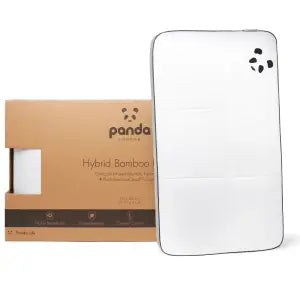 Hybrid Bamboo Pillow
Hybrid Bamboo Pillow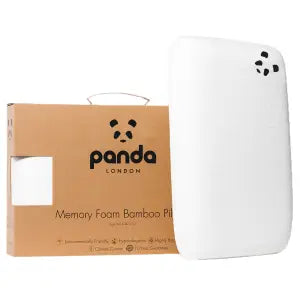 Memory Foam Bamboo Pillow
Memory Foam Bamboo Pillow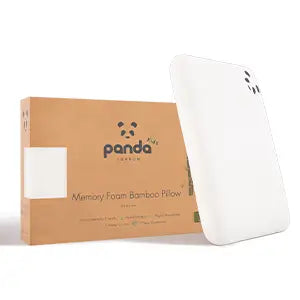 Kids Memory Foam Bamboo Pillow
Kids Memory Foam Bamboo Pillow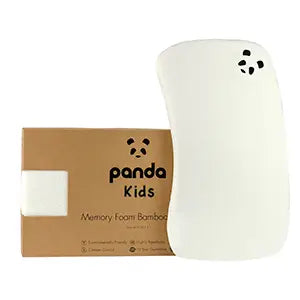 Baby Memory Foam Bamboo Pillow
Baby Memory Foam Bamboo Pillow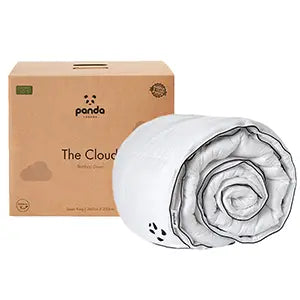 Panda Cloud Duvet
Panda Cloud Duvet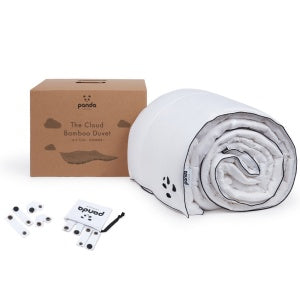 Bamboo Summer Duvet
Bamboo Summer Duvet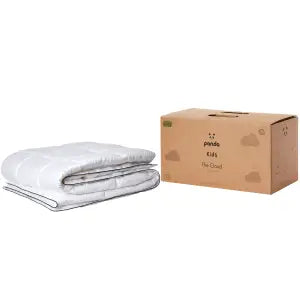 Kids Cloud Duvet
Kids Cloud Duvet
![[CoconutWhite] Bamboo and French linen Bedding Full Set Package](http://pandalondon.com/cdn/shop/files/Bamboo_and_French_Linen_Coconut_White_Bedding_set_-_webp.webp?v=1739374436&width=800)
![[CoconutWhite] Bamboo and French linen Bedding Set Pillows](http://pandalondon.com/cdn/shop/files/CoconutWhite_-_BambooFrenchLinen-_Bedding_Set_01.webp?v=1739374404&width=1000)
![[CoconutWhite] Bamboo and French linen Bedding Set Full](http://pandalondon.com/cdn/shop/files/CoconutWhite_-_BambooFrenchLinen-_Bedding_Set_02.webp?v=1739374404&width=1000)
![[CoconutWhite] Bamboo and French linen Bedding Texture](http://pandalondon.com/cdn/shop/files/CoconutWhite_-_BambooFrenchLinen-_Bedding_Set_Texture.webp?v=1739374404&width=1000)
![[CoconutWhite] Bamboo and French linen Bedding Set Two Pillows](http://pandalondon.com/cdn/shop/files/CoconutWhite_-_BambooFrenchLinen-_Pillows.webp?v=1739374404&width=1000)
![[HimalayanPink] HimalayanPink Bamboo and French linen Bedding Set Package](http://pandalondon.com/cdn/shop/files/HimalayanPink_-_BambooFrenchLinen-_Bedding_Set_Package_03.webp?crop=region&crop_height=1090&crop_left=205&crop_top=0&crop_width=1090&v=1739374404&width=1500)
![[HimalayanPink] HimalayanPink Bamboo and French linen Bedding Set Pillows with flowers](http://pandalondon.com/cdn/shop/files/HimalayanPink_-_BambooFrenchLinen-_Bedding_Set_01.webp?v=1739374404&width=1000)
![[HimalayanPink] HimalayanPink Bamboo and French linen Bedding Set Full](http://pandalondon.com/cdn/shop/files/HimalayanPink_-_BambooFrenchLinen-_Bedding_Set_02.webp?v=1739374404&width=1000)
![[HimalayanPink] HimalayanPink Bamboo and French linen Bedding Set Package Texture](http://pandalondon.com/cdn/shop/files/HimalayanPink_-_BambooFrenchLinen-_Bedding_Set_Texture.webp?v=1739374404&width=1000)
![[HimalayanPink] HimalayanPink Bamboo and French linen Bedding Set Package Two Pillowscases](http://pandalondon.com/cdn/shop/files/HimalayanPink_-_BambooFrenchLinen-_Pillows.jpg?v=1739374404&width=1000)
![[MidnightNavy] MidnightNavy Bamboo and French linen Bedding Set Package](http://pandalondon.com/cdn/shop/files/MidnightNavy_-_BambooFrenchLinen-_Bedding_Set_03_Package.webp?crop=region&crop_height=1090&crop_left=205&crop_top=0&crop_width=1090&v=1739374404&width=1500)
![[MidnightNavy] MidnightNavy Bamboo and French linen Bedding Set Pillows with flowers](http://pandalondon.com/cdn/shop/files/MidnightNavy_-_BambooFrenchLinen-_Bedding_Set_01.webp?v=1739374404&width=1000)
![[MidnightNavy] MidnightNavy Bamboo and French linen Bedding Set Full](http://pandalondon.com/cdn/shop/files/MidnightNavy_-_BambooFrenchLinen-_Bedding_Set_02.webp?v=1739374404&width=1000)
![[MidnightNavy] MidnightNavy Bamboo and French linen Bedding Set Package Texture](http://pandalondon.com/cdn/shop/files/MidnightNavy_-_BambooFrenchLinen-_Bedding_Set_Texture.webp?v=1739374404&width=1000)
![[MidnightNavy] MidnightNavy Bamboo and French linen Bedding Set Package Two Pillows](http://pandalondon.com/cdn/shop/files/MidnightNavy_-_BambooFrenchLinen-_Bedding_Set_Pillows.jpg?v=1739374404&width=1000)
![[Natural] Natural Bamboo and French linen Bedding Set Package](http://pandalondon.com/cdn/shop/files/Natural_-_BambooFrenchLinen-_Bedding_Set_Package.webp?crop=region&crop_height=1090&crop_left=205&crop_top=0&crop_width=1090&v=1739374404&width=1500)
![[Natural] Natural Bamboo and French linen Bedding Set Full Panda London](http://pandalondon.com/cdn/shop/files/Natural_-_BambooFrenchLinen-_Bedding_Set_01.webp?v=1739374404&width=1000)
![[Natural] Natural Bamboo and French linen Bedding Set Full Set](http://pandalondon.com/cdn/shop/files/Natural_-_BambooFrenchLinen-_Bedding_Set_02.webp?v=1739374404&width=2000)
![[Natural] Natural Bamboo and French linen Bedding Set Texture](http://pandalondon.com/cdn/shop/files/Natural_-_BambooFrenchLinen-_Bedding_Set_Texture.webp?v=1739374404&width=1000)
![[Natural] Natural Bamboo and French linen Bedding Set Pillows and Pillowcases](http://pandalondon.com/cdn/shop/files/Natural_-_BambooFrenchLinen-_Bedding_Set_Pillows.jpg?v=1739374404&width=1000)
![[SlateGrey] SlateGrey Bamboo and French linen Bedding Set Package](http://pandalondon.com/cdn/shop/files/SlateGrey_-_BambooFrenchLinen-_Bedding_Set_Package.webp?crop=region&crop_height=1090&crop_left=205&crop_top=0&crop_width=1090&v=1739374404&width=1500)
![[SlateGrey] SlateGrey Bamboo and French linen Bedding Set Full](http://pandalondon.com/cdn/shop/files/SlateGrey_-_BambooFrenchLinen-_Bedding_Set_01.webp?v=1739374404&width=1000)
![[SlateGrey] SlateGrey Bamboo and French linen Bedding Set Full Panda London](http://pandalondon.com/cdn/shop/files/SlateGrey_-_BambooFrenchLinen-_Bedding_Set_02.webp?v=1739374404&width=1000)
![[SlateGrey] SlateGrey Bamboo and French linen Bedding Set Texture](http://pandalondon.com/cdn/shop/files/SlateGrey_-_BambooFrenchLinen-_Bedding_Set_Texture.webp?v=1739374404&width=1000)
![[SlateGrey] SlateGrey Bamboo and French linen Bedding Set Pillows Two](http://pandalondon.com/cdn/shop/files/SlateGrey_-_BambooFrenchLinen-_Bedding_Set_Pillows_and_pillowcases.jpg?v=1739374404&width=1000)
![[SilverLightGrey] SilverLightGrey Bamboo and French linen Bedding Set Package](http://pandalondon.com/cdn/shop/files/SlateGrey_-_BambooFrenchLinen-_Bedding_Set_Package_1abba039-dafb-440b-8faf-5690962c6922.webp?crop=region&crop_height=1090&crop_left=205&crop_top=0&crop_width=1090&v=1739374404&width=1500)
![[SilverLightGrey] SilverLightGrey Bamboo and French linen Bedding Set Pillow](http://pandalondon.com/cdn/shop/files/SlateGrey_-_BambooFrenchLinen-_Bedding_Set_01_b1f7b31a-7706-47e9-951a-9baeb34d589a.webp?v=1739374404&width=1000)
![[SilverLightGrey] SilverLightGrey Bamboo and French linen Bedding Set Full](http://pandalondon.com/cdn/shop/files/SlateGrey_-_BambooFrenchLinen-_Bedding_Set_02_554e8cc5-b373-485a-a9e2-91fc3ff381ab.webp?v=1739374404&width=1000)
![[SilverLightGrey] SilverLightGrey Bamboo and French linen Bedding Set Texture](http://pandalondon.com/cdn/shop/files/SlateGrey_-_BambooFrenchLinen-_Bedding_Set_Texture_03.webp?v=1739374404&width=1000)
![[SilverLightGrey] SilverLightGrey Bamboo and French linen Bedding Set Two pillows](http://pandalondon.com/cdn/shop/files/SlateGrey_-_BambooFrenchLinen-_Bedding_Set_Pillows_both.jpg?v=1739374404&width=1000)
![[GreyEyeMask] Panda London Bamboo Grey Eye Mask](http://pandalondon.com/cdn/shop/files/Grey_Eye_Mask_01.jpg?v=1718269260&width=1000)
![[GreyEyeMask] Panda London Bamboo Grey Eye Mask Full](http://pandalondon.com/cdn/shop/files/Grey_Eye_Mask_02.jpg?v=1718269260&width=1000)
![[GreyEyeMask] Panda London Bamboo Grey Eye Mask Package](http://pandalondon.com/cdn/shop/files/Grey_Eye_Mask_03.jpg?v=1718269259&width=1000)
![[BlackEyeMask] Panda London Bamboo Black Eye Mask Package](http://pandalondon.com/cdn/shop/files/Black_Eye_Mask_01.jpg?v=1718269260&width=870)
![[BlackEyeMask] Panda London Bamboo Black Eye Mask Full](http://pandalondon.com/cdn/shop/files/Black_Eye_Mask_02.jpg?v=1718269259&width=1000)
![[BlackEyeMask] Panda London Bamboo Black Eye Mask Full Package](http://pandalondon.com/cdn/shop/files/Black_Eye_Mask_03.jpg?v=1718269259&width=1000)
![[VintagePink] Pink_Eye_Mask_01](http://pandalondon.com/cdn/shop/files/Pink_Eye_Mask_01.jpg?v=1718269259&width=909)
![[VintagePink] vintage-pink Panda London Bamboo Eye mask](http://pandalondon.com/cdn/shop/files/Pink_Eye_Mask_02.jpg?v=1718269260&width=1000)
![[VintagePink] vintage-pink Panda London Bamboo Eye mask Package Full](http://pandalondon.com/cdn/shop/files/Pink_Eye_Mask_03.jpg?v=1718269259&width=1000)
